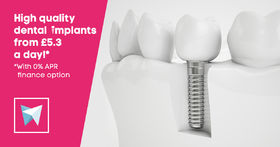Gum recession is a condition that affects many patients from many different walks of life. It usually affects patients above 30, and patients with certain characteristics are the most likely to have this problem. Gum recession is a problem not only because it looks bad, but also because it leaves the teeth unprotected and much more likely to decay, and can greatly contribute to tooth sensitivity. Here in this article I will discuss the negative side effects of gum recession, and also give a short list of the conditions and life style choices that can lead to this uncomfortable condition.

A few words on gums
Gums are like an organ, much like your skin. They are made up of very closely knit, very responsive cells, and are interwoven with capillaries circulating blood, and with nerves that are quite sensitive. They serve as protection; they cover the cementum and the tooth roots of the teeth, which do not like to be close to the surface, and they insulate the dental nerves. They also protect by making saliva and secreting it through saliva glands. And just like any organ, they are subject to change, they can bloat up when infected, or shrink when maligned.
Gum recession
Gum recession is a medical problem and not just an aesthetic one. It leaves parts of teeth that are otherwise used to being protected by the gums open to attack from bacteria, which they are not adapt at fighting off. It also makes the mouth drier, and the oral cavity is thus less able to fight off invading microbes. It also causes bleeding gums, not only because the gums dry out and crack, but also because as the volume of the gums decreases, the density of capillaries increases per cubic centimetre.
Common causes of gum recession
1) Smoking: Smoking causes the gums to shrivel up, as nicotine is poison, and the gums do their best to shy away from coming into contact with smoke, as this carcinogenic material contains nicotinoids, benzol, and tar.
2) Periodontitis: Although periodontitis usually causes gums to swell, healthy gums may try and shrivel away from bacteria that are entering the bloodstream from a given point, like in a cavity in a tooth. Usually if the shrivelling is only in one part of the mouth, there is some bacterial infection that the gums are trying to avoid.
3) Crowns: The metal structure of standard metal crowns causes gums to shrink. This is because they do not like to be in contact with foreign materials.
4) Medication: Many prescription drugs can cause your gums to shrivel, especially ones that cause water to be pushed out of the cells. Any medication that causes dry mouth as a possible symptom also has the potential to shrink your gums.
If you are experiencing that your smile shows a bit more tooth than previously, you amy want to consult your dentist. Finding the cause of the problem is the only way that effective steps can be taken against gum recession, and its effects can always be reversed, so you do not need to accept this problem as an inevitability.


 Call
Call Send
Send Find us
Find us Connect
Connect